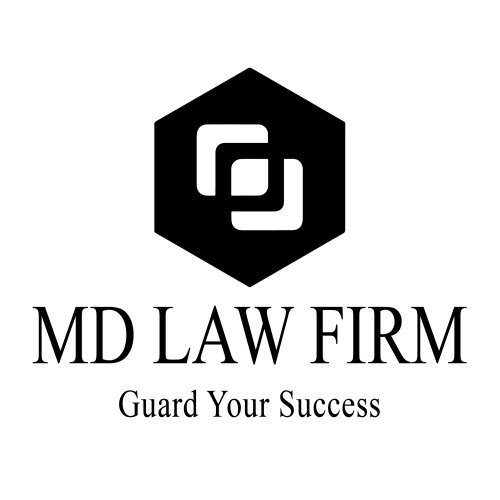Best Citizenship Lawyers in Da Nang
Share your needs with us, get contacted by law firms.
Free. Takes 2 min.
List of the best lawyers in Da Nang, Vietnam
About Citizenship Law in Da Nang, Vietnam
The citizenship law in Da Nang, like the rest of Vietnam, is primarily based on the principles of jus sanguinis, meaning citizenship is generally acquired by descent rather than by birth within a country's territory. The Law on Vietnamese Nationality of 2008 governs matters related to citizenship - it covers areas such as acquiring, losing, and reinstating Vietnamese citizenship. It's important to note that Vietnam does not generally recognize dual citizenship, and renunciation of Vietnamese citizenship requires approval from the President.
Why You May Need a Lawyer
The process of acquiring, renouncing, or seeking clarification on citizenship matters in Vietnam can be complex and requires a thorough understanding of the local laws and bureaucracy. A lawyer can be invaluable in assisting with the application process, ensuring all paperwork is filled out correctly, and advising you of your legal status and rights. If you are attempting to reclaim your Vietnamese citizenship or renounce it, legal advice will be particularly beneficial to ensure the process runs smoothly.
Local Laws Overview
Article 10 of the Law on Vietnamese Nationality outlines that individuals can acquire Vietnamese citizenship if they have at least one parent who is a Vietnamese citizen, or by naturalization. Naturalization requirements include being able to speak and understand Vietnamese, having resided in Vietnam for two years or more, and contributing to the nation’s development. Renouncing Vietnamese citizenship requires a petition and approval from the President and may have serious legal and social implications. It's crucial to understand these local laws of Da Nang, and Vietnam at large, to navigate the citizenship process effectively.
Frequently Asked Questions
How can I acquire Vietnamese citizenship through naturalization?
Eligibility for naturalization includes requirements such as understanding the Vietnamese language, living in Vietnam for a minimum of 5 years, having a clear criminal record, and contributing to the nation's development.
Can one possess dual citizenship in Vietnam?
Vietnam generally does not acknowledge dual citizenship. Exceptions exist, but are usually in special cases or for those who were dual citizens before the Law on Vietnamese Nationality was enacted in 2009.
Is it possible to lose or renounce Vietnamese citizenship?
Yes, it's possible to lose or renounce Vietnamese citizenship, but it requires a process that includes petitioning to the President of Vietnam, who has final approval authority in these matters.
Can I claim Vietnamese citizenship if my parents are Vietnamese?
Yes, under Vietnamese law, individuals are eligible for citizenship if at least one of their parents is a Vietnamese citizen.
How can a lawyer assist me with citizenship matters?
A lawyer can help to ensure all paperwork is correctly completed, explain the local laws and processes, and guide you through the systems and bureaucracy in place. This can include liaising with the local authorities on your behalf.
Additional Resources
The Ministry of Justice is a critical resource for matters related to citizenship law in Vietnam. For matters specific to Da Nang, the Department of Justice in Da Nang can be a valuable resource. Also, the Bureau for Population, Family and Children (under the Department of Justice) is the agency in charge of marriage and adoption cases involving foreign elements, which can also involve citizenship matters.
Next Steps
If you need legal assistance concerning citizenship in Da Nang, it would be advisable to consult with a lawyer with extensive knowledge in Vietnamese citizenship law. They can help you to understand the legal landscape, your circumstances, and guide you through the necessary procedures. Start by making a list of your questions and concerns, and seek out a reputable legal expert for a consultation.
Lawzana helps you find the best lawyers and law firms in Da Nang through a curated and pre-screened list of qualified legal professionals. Our platform offers rankings and detailed profiles of attorneys and law firms, allowing you to compare based on practice areas, including Citizenship, experience, and client feedback.
Each profile includes a description of the firm's areas of practice, client reviews, team members and partners, year of establishment, spoken languages, office locations, contact information, social media presence, and any published articles or resources. Most firms on our platform speak English and are experienced in both local and international legal matters.
Get a quote from top-rated law firms in Da Nang, Vietnam — quickly, securely, and without unnecessary hassle.
Disclaimer:
The information provided on this page is for general informational purposes only and does not constitute legal advice. While we strive to ensure the accuracy and relevance of the content, legal information may change over time, and interpretations of the law can vary. You should always consult with a qualified legal professional for advice specific to your situation.
We disclaim all liability for actions taken or not taken based on the content of this page. If you believe any information is incorrect or outdated, please contact us, and we will review and update it where appropriate.










